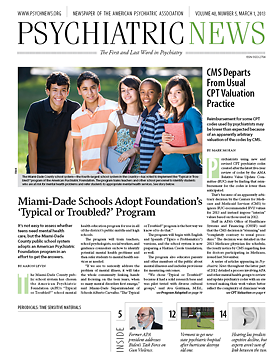On January 11, “ABC Evening News” reported that, for the first time, a teen with an autism spectrum disorder was competing in the Miss America contest. It was Miss Montana, Alexis Wineman. Her mother admitted that she would never have expected such an outcome.
Yet a new study suggests that such a scenario is indeed possible, finding that some children on the autism spectrum eventually obtain an overall level of functioning comparable to that of typically developing children.
The study, which was headed by Deborah Fein, Ph.D., a professor of psychology at the University of Connecticut, was published in the February Journal of Child Psychology and Psychiatry.
Fein and her colleagues recruited 34 children who had received an autism spectrum disorder (ASD) diagnosis early in life, but whose parents reported that the children were now functioning no differently from their mainstream peers and were attending school in regular classrooms. The researchers called this group the “optimal-outcome group.”
The researchers then used standard cognitive and observational tests, as well as parent questionnaires, to compare the optimal-outcome group’s functioning with that of 34 typically developing children who were matched on age, gender, and nonverbal IQ.
The researchers found that the optimal-outcome group obtained, on average, scores that were similar to those of the typically developing children in the domains of socialization, communication, and face recognition. However, three of the optimal group did show below-average scores on face recognition, and seven were mildly affected by nonautism conditions such as anxiety, depression, or impulsivity.
“The results clearly demonstrate the existence of a group of individuals with an early history of autism spectrum disorder who no longer meet criteria for any autism spectrum disorder and whose communication and socialization skills…are on par with that of typically developing individuals…Fein and her team concluded.
Fein told Psychiatric News that “it would be incorrect to call [optimal outcome] ‘growing out of it.’ All of these kids have had behavioral interventions.”
She pointed out that based on her research and clinical practice, although “it’s never too late to start interventions,” treatment appears to have a greater effect if patients are diagnosed and treated early. She noted as well that ASD may be a heterogeneous syndrome that involves different neurological pathologies, and if this is the case, it may account for variations in treatment response.
The study’s results didn’t surprise Louis Kraus, M.D., a professor of psychiatry at Rush University and an autism expert. “These findings are consistent with what we see clinically” in some youngsters with an ASD diagnosis, he said in an interview with Psychiatric News.
For example, “as the pruning and myelination that occurs between the frontal lobe and the midbrain begin to solidify in late teens and early 20s, we sometimes see something different from what we initially observed,” he explained. “Some of the tremendous deficits in socialization start to improve. The kids start developing coping strategies.…They may realize that the world is not going to change to fit their rigid view of things, and they begin to adapt somewhat.”
Perhaps the most positive aspect of the findings, Kraus pointed out, is that they give hope to parents of children with ASD. “The study emphasizes the need for early intervention—to get all the social services, mental health interventions, and educational interventions possible to help the child, because so many of these kids, if they get the type of interventions they need, can become much more active members of society.”
The study does not provide information on what percentage of children diagnosed with an ASD might eventually lose symptoms of the illness or what factors account for such a favorable outcome. But as the researchers pointed out, “It was the clinical impression of our team that the optimal-outcome parents were generally highly involved in the children’s treatment programs and in their social lives.”
The study was funded by the National Institutes of Health. ■

